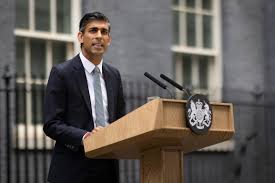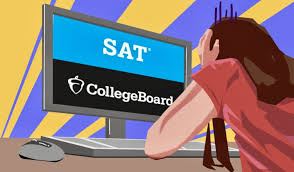Election 2016: The Republican Party is Failing History Class

March 29, 2016
In the Presidential Election of 1896, the Republican establishment candidate William McKinley faced an America in crisis. Racked by an economic contraction in 1893, thousands of rural farmers defaulted on their mortgages and armies of jobless roamed the country. Hundreds of banks had failed, and grassroots political leaders began railing against the business tycoons on the Eastern seaboard and the criminal money power of Wall Street. The Panic of 1893 was only a small indicator of an American economy facing an intense period of disruption–both from increased global competition and more machines doing the jobs workers once did. Adding to domestic unrest were unprecedented levels of income inequality and influxes of foreign immigrants at levels Americans had never seen before.
Voters were angry as they saw the government in Washington paralyzed by gridlock and doing little to address these problems. Neither the Democrats nor the Republicans could achieve a substantial majority in Congress that aligned with control of the White House. In fact, two of the last five presidential elections prior to 1896 saw a candidate lose the popular vote but win the electoral college. One election involved a grueling three month dispute over ballots in, where else, but Florida. If any of this sounds familiar, it’s easy to see that the America of the Gilded Age looks shockingly similar to the America of today.
Unsurprisingly, in this climate of Gilded Age disorder arose a populist candidate on the Democratic side promising quick fixes to what were structural and primarily external economic pressures. William Jennings Bryan was a gifted orator and staunch protestant moralist who advocated “agitation” to disrupt a “vicious system of finance.” Bryan famously declared in his Cross of Gold speech at the Democratic Convention in Chicago that he would not allow Republicans “to press down a crown of thorns” on the brow of the American worker. He took this message around the country, hitting multiple states in a single day with the help of the nation’s new high speed rail lines.
Bryan is the historical antecedent to candidates of the Trump/Sanders variety. Mr. Trump has capitulated himself to the top of the thinning Republican field by peddling unsubstantiated claims that he can restore America to its former glory. Though his campaign offers little specific policy, his general economic plan focuses on instituting high tariffs on foreign goods and growing domestic employment by keeping foreigners out. These highly reactionary and ineffective measures would make a lethal cocktail when paired with irresponsible income tax cuts.
On the left, Mr. Sanders offers similar pie in the sky theories, albeit with a softer tone than that taken by the Trump clan. He wants to attack rising levels of income inequality in America with expensive domestic programs. His hope is that the passing of politically-popular measures like free public education and universal healthcare will mask the pain of tax hikes on all Americans (but disproportionately on the wealthy). Bernie, as he is affectionately known to his loyal supporters, would end private healthcare in America and grow the entitlement obligations of the federal government even as it cannot pay for its current ones. Amazingly, he does incredibly well with young voters, who would be sandbagged with the debt obligations of his plan long into their adult lives.
While Mr. Sanders will soon be forced to end his candidacy, the Trump campaign (many have branded it a movement, rather) is likely to be thrust upon the moderate wing of the Republican party in the general election. As he slowly creeps towards the 1271 delegates needed to clinch the GOP nomination, Republicans know that so too creep away their chances of taking back the White House. The Mitt Romney/Paul Ryan types will lament this, but it is their own fault. The sensible part of one of the world’s great political parties has failed to study 1896.
William McKinley, despite the initial wave of electoral momentum given to his populist opponent, secured a Republican landslide and a victory for pro-business economic policy by getting his politics right. McKinley had a clear message from the outset of his campaign: he could restore jobs and raise wages for all workers by protecting American industry. His campaign agents flooded the battleground states of the Midwest with carefully crafted campaign literature dispelling the theories of Bryan and explaining their platform. McKinley also refused to lower himself to the divisive rhetoric employed by candidates of the Bryan/Trump mold. He unified a country that was still healing from the Civil War and broadened the GOP coalition, rather than shrink it as Mr. Trump has done. He reached out to African Americans, Catholics and new immigrant groups, all of which had been shunned by the major parties in the past. When the results poured in on election day, the former governor of Ohio won high percentages of groups that in the past had never voted Republican. He fastened a Republican alliance of urbanites, farmers and immigrants that the Democrats could not challenge for 35 years.
So, over a century ago, McKinley demonstrated a model and created a playbook that could have been used in 2016 for similar triumph of the Republican vision. But the nativist and often intolerant elements of its far flank have rendered a significant portion of the party platform toxic in a general election. Trump will not succeed in an increasingly diverse America, and the unsoundness of his policies will be exposed under national scrutiny. 2016 will be a year to remember for Democrats in America. For Republicans it will be one to forget. History is funny like that.











